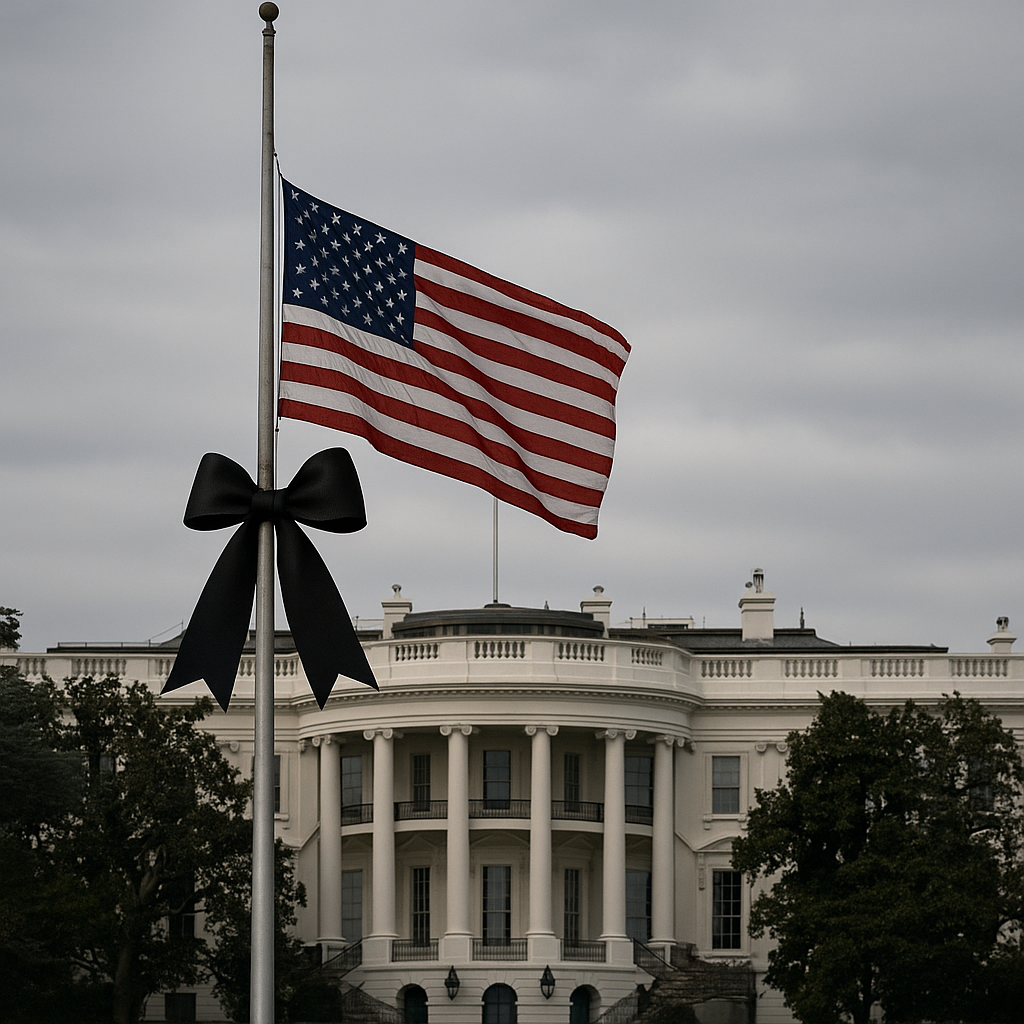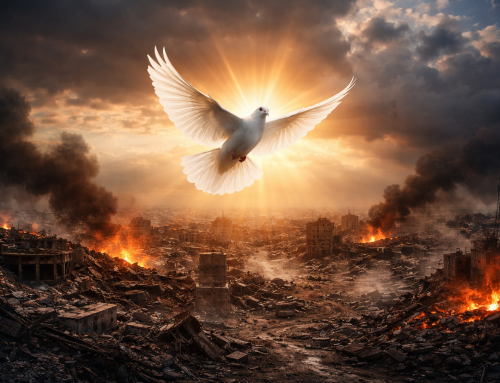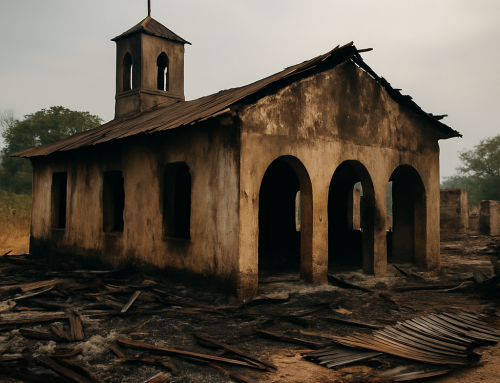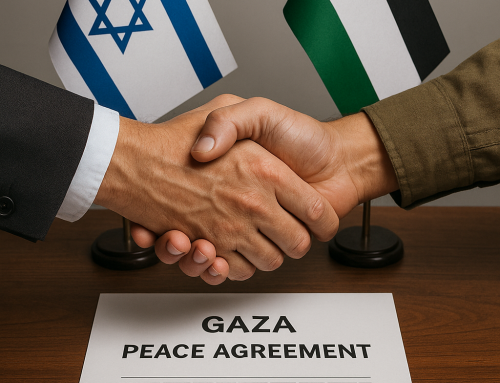Charlie Kirk: the American Hero
With great sorrow and dismay we learned , that On September 10, 2025, during a public event in Utah, Charlie Kirk, a young founder of Turning Point USA and a well-known face in the American conservative world, was killed. A gunshot wound snatched him from life within moments, in front of the eyes of hundreds of people. While speaking from a stage, Kirk was shot in the neck in what some sources indicate was a possible political assassination attempt. The event prompted immediate political and media reactions. The Vatican condemned the violence and called for mutual respect even among those with different ideas. In the United States, Kirk’s death has become symbolic of escalating political violence, social resentment, and how language and ideological divisions can escalate into tragedy.
On September 12, 2025, Donald Trump said in an interview that with “a high degree of certainty” a suspect has been identified as the killer and is in custody. Someone close to the suspect reportedly recognized the person and turned him over to authorities. President Trump described the event as a “despicable murder” and promised that after the capture, there will be severe consequences.
We do not yet know all the details. But what remains before us is a tragedy that brings to light a reality that many Christians feel every day: living and witnessing to the faith can mean being exposed to hatred, violence, and persecution.
Sometimes we think that persecution belongs only to the early centuries of Christianity or to distant lands. Yet the data tell us that more than 300 million Christians in the world today suffer forms of discrimination, intimidation or violence because of their faith.
- In Nigeria, whole communities are being slaughtered by armed groups just because they gathered to pray.
- In India, Catholic nuns are arrested on baseless charges of “forced conversions.”
- In Syria and Congo, churches have become targets of bloody attacks.
Yet in the midst of this darkness, Christians continue to gather, to sing hymns, to raise their hands toward heaven. Like the first disciples, persecuted but not crushed, afflicted but not in despair.
Persecution is not always blood and violence. Sometimes it is subtle, cultural, “soft.”
- Those who are excluded or mocked for their faith;
- Those who lose job opportunities because they refuse ethical compromises;
- those who are accused of “intolerance” just for professing uncomfortable truths about marriage, life, and human dignity.
This is also a burden that many Christians carry on their shoulders in our time. It does not take away our lives, but it tests our faithfulness and courage.
“Blessed are you when they insult you and persecute you and, lying, say all kinds of evil against you for my sake. Rejoice and exult” (Mt. 5:11-12).
Hard words to take in, especially when the pain is real. But the Gospel shows us that suffering, when lived in faith, can become a shining witness.
The blood of martyrs is the seed of new Christians, said the Church Fathers. Every tear, every wound, every hidden sacrifice becomes prayer, strength, consolation for others.
What are we called to do?
- Pray for those who suffer today because of their faith, in every corner of the world.
- Inform us and do not remain indifferent: silence becomes complicity.
- To witness boldly, even in small daily things, without being ashamed of Christ.
- To concretely support persecuted communities with aid, solidarity, charity initiatives.
The apostle Paul writes, “We are tribulated on every side, but not crushed; we are shocked, but not despairing; persecuted, but not forsaken; struck down, but not killed” (2 Cor. 4:8-9).
This is the heart of Christian hope: even in the thickest darkness, we are not alone. Christ is with us. And his love is stronger than every hatred, every bullet, every persecution.
St. Paul writes to the Corinthians:
“We are tribulated on every side, but not crushed; we are upset, but not in despair; persecuted, but not forsaken; struck down, but not killed” (2 Cor. 4:8-9).
Words that sound like a paradox: persecuted but not killed this sounds like the paradox of Christian hope. For if we look at history, almost all of Christ’s apostles were actually killed. Peter crucified in Rome, Paul beheaded, James pierced by the sword, Bartholomew skinned alive, Thomas pierced by spears in India–all except John, the beloved disciple, who died late in life on the island of Patmos.
Yet Paul does not lie. Why?
The apostles were killed in the flesh, but not in the spirit. Their voices were not extinguished, their proclamation was not reduced to silence. On the contrary: out of their blood was born the Church.
- Peter dies crucified, but his confession, “You are the Christ, the Son of the living God,” continues to be proclaimed throughout the centuries.
- Paul died beheaded, but his letters still run around the world faster than any sword.
- James is killed, but his martyrdom becomes a seed of faith in Spain and beyond.
They were killed, yes, but not killed in the full sense: the life Christ had given them was not broken.
John is the only apostle who did not suffer martyrdom. He died old, but not immune to persecution: he was exiled to Patmos, imprisoned, threatened. However, on that very island of solitude he wrote Revelation, one of the most luminous and consoling texts for the persecuted Church. The fact that John did not die by sword or cross does not disprove Paul: it shows that it is not the manner of death that matters, but fidelity to the mission. Whether one dies a martyr’s death or consumes one’s life in patient waiting, what matters is remaining in Christ.
The deeper meaning is that those who belong to Christ can never really be killed.
- Physical death has no power over Christians .
- The hatred of men can take away earthly life, but it cannot extinguish eternal Life.
- Persecution may destroy bodies, but it cannot erase hope.
The apostles were almost all killed, but none of them were truly defeated. Their victory is the risen Christ, who has conquered death once and for all.
Today millions of Christians suffer for their faith. Some are killed in churches, villages, mission fields. Others are imprisoned, hunted, reduced to silence. Yet, like the apostles, their faith remains alive, their witness continues to speak, their sacrifice becomes a seed of new life.
We prayerfully join the grief of the family affected by this enormous sorrow and pray for every nation in the world, that this murderous demon, of intolerance, will be silenced by the power of Christ’s love, and that hearts will be opened to reconciliation, justice and peace.
Francesco Pastone






